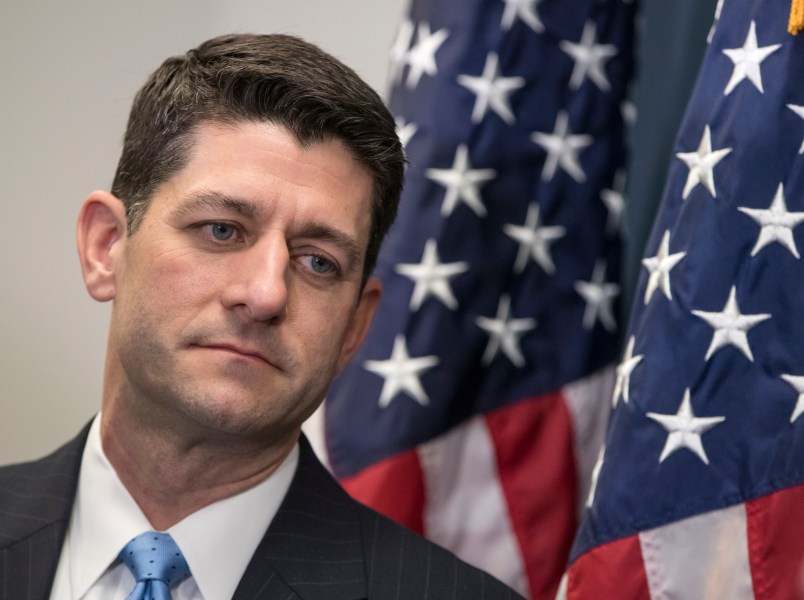Twenty-four million people would lose their insurance over the next 10 years under Republican legislation being pushed to repeal Obamacare, the non-partisan Congressional Budget Office said Monday.
“In 2026, an estimated 52 million people would be uninsured, compared with 28 million who would lack insurance that year under current law,” the CBO said.
Many of the provisions in the Republican bill, the American Health Care Act, would not take effect until 2020. But according to Monday’s CBO score, its effects on coverage would be felt almost immediately. The agency projected that in 2018, just in time for mid-term elections, 14 million more people would be uninsured than under current law, if the GOP bill was implemented. The difference would grow to 21 million in 2020, which is when the Republicans’ massive overhaul of Medicaid would kick in, and then to 24 million in 2026.
The initial drop-off in coverage would be the result of the individual mandate being repealed immediately under the Republican legislation. The CBO also predicted that premiums would rise in that period.
However, in 2020, premiums would begin to go down compared to current, according CBO’s analysis, as other provisions in the Republican bill took effect. The CBO predicted that some shifting of enrollment back into the individual market would also begin in 2020, as the GOP proposed tax credits became available.
“Roughly 9 million fewer people, on net, would obtain coverage through the
nongroup market in 2020; that number would fall to 2 million in 2026,” the CBO said.
The legislation’s transformation of Medicaid — by freezing the expansion and turning the entire program into a form of block grants — would kick in 2020. “Roughly 9 million fewer people would enroll in Medicaid in 2020; that figure would rise to 14 million in 2026,” as a result of those changes, the CBO said.
The amount of individuals who get their insurance through employer-based plans would decrease under the Republicans bill, as its repeals the employer mandate as well.
“Roughly 2 million fewer people, on net, would enroll in employment-based
coverage in 2020, and that number would grow to roughly 7 million in 2026,” the CBO said.
The release of CBO’s findings was a much-anticipated moment in the debate over whether and how lawmakers dismantle the Affordable Care Act. The Republican bill was already facing resistance by the GOP’s far-right wing in the House, and the CBO’s coverage numbers were being watched closed by Republicans in Senate, who have signaled they would prefer a more moderate approach to replacing Obamacare.
There is one finding that Republicans will be able to tout from the CBO report. It found that the legislation would begin curbing premium growth starting in 2020, when the bulk of the legislation would take effect, so that by 2026 average premiums would be 10 percent lower than what they’re projected to be under the Affordable Care Act. That shift would be preceded by two years of higher premiums, however, which will be politically painful for Republicans as they head into mid-terms and then the 2020 election. There is also a major caveat in who benefits the most from the premium changes that result under the Republican legislation, because it would permit insurers to charge older people more when compared to younger people than the current law allows.
“By 2026, CBO and JCT project, premiums in the nongroup market would be 20 percent to 25 percent lower for a 21-year-old and 8 percent to 10 percent lower for a 40-year-old—but 20 percent to 25 percent higher for a 64-year-old,” the report said.







And the cost for those extra millions to be uninsured? Whoops, upon scrolling down I see that the repeal will actually be deficit reducing even with the lost revenue from the taxes on the uber wealthy. That will be used as a cudgel to justify the repeal even as tens of millions more are left uninsured I’m afraid.
Nothing to the rich Republicans!
But at least they will have “access.” Right guys?
Well, it’s up to people.
Republicans may scream, “You lie!”
But most of the people who are afraid of losing coverage are not going to listen or believe them.